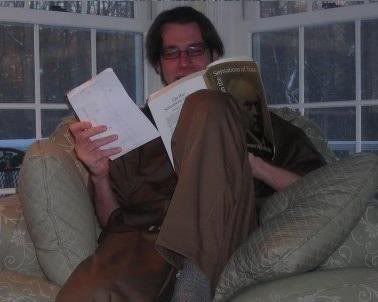It is extremely stupid that excess of electrons should be called negative charge and deficiency of them called positive charge in current scientific language. When they teach you about it in school they tell you, if they try to justify it at all, that because the mathematical and utilitarian results are the same when you're dealing with positive and negative numbers, it doesn't make a difference which you call which. They tell you that it's arbitrary. I disagree. It does make a difference conceptually. It is not arbitrary that we associate the addition of something with positive numbers and the subtraction of something with negative numbers. That’s what’s happening, and the language in which it is described should reflect what’s happening. Science isn’t merely a tool for industry, it is supposed to be an accurate picture of what is going on, a picture that takes what’s happening in the world and represents it most accurately to the one kind of being to which pictures are significant: The mind.
“But”, one may argue, “work for it for long enough, you conceptually get what’s going on anyway. Once you learn the language, even though it’s not intuitive, you get the picture. You see a positive as a deficiency of electrons even though the event that happens in nature is a subtraction.” When we’ve worked with it for a while we don’t have to do the extra step of reversing the signs in our heads to relate to the physical world with an accurate concept, but why should we have to do it while learning it? Or if we did not do it when we learned, and just studiously balanced the equations without regard for proper conceptualization, how well do we relate to the accurate picture even having worked with the conventional model long enough?
Same issue with the conventional representation of the flow of electrical current from positive to negative rather than the direction charge actually flows, from negative to positive. Now, in all the rest of physics energy does flow from point of excess to point of deficiency, as heat flows from high temperature to low temperature, as fluid flows from high pressure to low pressure, as water flows from high elevation (potential energy) to low. This is in fact the reason that conventional current is represented this way. The same early researchers that concluded that what we now call positive charge was an excess rather than a deficiency as it actually is, concluded that it flowed rather than being flowed into. So there is a point in representing electricity as flowing the wrong way: To use a flow from positive to negative is intuitive. But in light of what has been said above, it should be clear why this is wrong. If we regard the electron as the electrically positive charge then we can represent the actual flow of electrons from point of high concentration to low concentration and retain the intuitiveness of positive-to-negative in the numerical representation.
To me, this is obvious. I do not see how it is not obvious to anyone who has ever given it any thought viz. the scientists. I understand there are historical reasons why this convention has been used all the years, but there is no sufficient justification for its continued use given what we know today and have in fact known for quite some time.
When scientists decided that Pluto wasn’t a planet anymore, they said so and within a week no one was fighting about it anymore. In the name of accuracy we change what we call things. I don’t think it will be hard to learn, even for people who have been working with the conventional model all their lives. In fact, I am confident that, once learned, the correct system will be easier to work with, for expert and beginner, (though even if it were decidedly harder, it would still be proper to use the more accurate models. It is harder to learn to solve gravity equations using Einstein's methods than Newtons, but we do it). Most of the people in the fields that have to think about this are pretty smart. Smart enough to learn to change the way they write things subtlely, and hopefully smart enough to see why it is sensible and correct to do so.
So here’s what I suggest. From now on, when you do chemistry homework or write chemistry papers and books and so on, write on the top or in the introduction that you’re using the more accurate conventions and leaving the old behind, stay consistent throughout your work, and let your teachers and students learn the new conventions on the fly, even become comfortable with them. Your answers and results are correct even if not stated in the conventional language and your teachers and students will have to acknowledge that. And in electricity classes, from basics onward - and if the basics have not been taught this way it can be introduced at any level; again we're dealing with smart people here - instead of teaching “conventional current flow” and incidentally showing “physical current flow” because that’s the way it really works, teach it the correct "physical" way and incidentally show the “conventional” way because your better students will have to deal with the historical conventions in historical texts.
Subscribe to:
Post Comments (Atom)

No comments:
Post a Comment